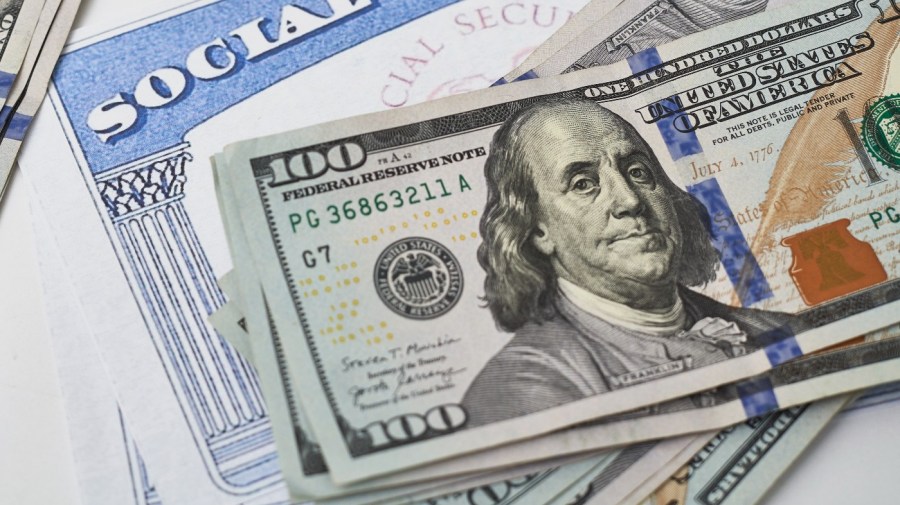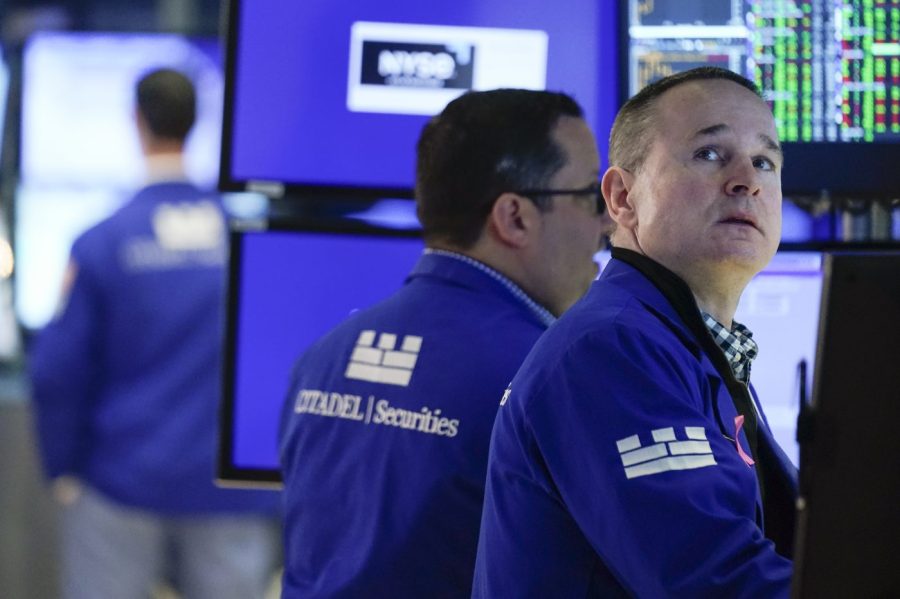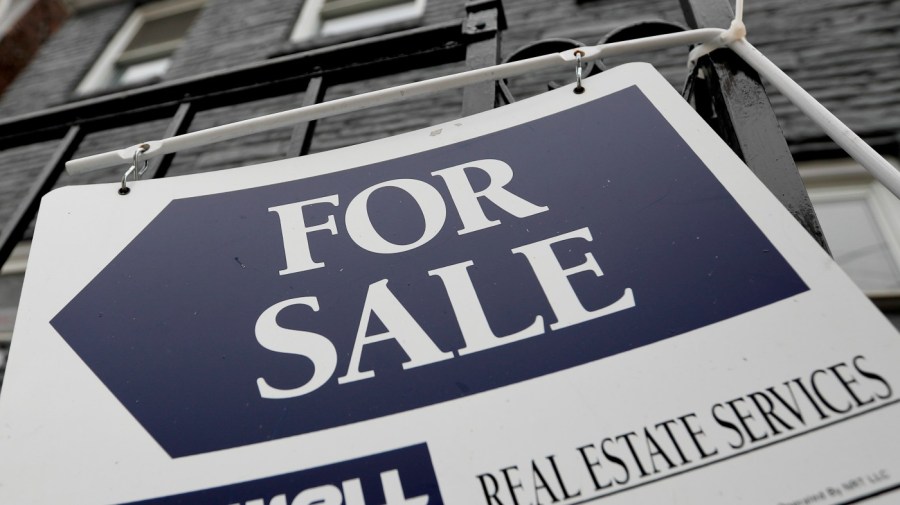Social Security, Medicare and stocks: How a debt-ceiling crisis could affect you
If the White House and House Republicans fail to raise the debt ceiling and the U.S. defaults on its national debt for the first time ever, the economic consequences for Americans will be wide-ranging and long-lasting.
Social Security checks could be held up, government salaries and contracts could be frozen, Medicare reimbursements to doctors and hospitals could be paused, markets for stocks and bonds will almost certainly take a dive, and financing levels for basic private purchases could skyrocket.
The good news is that aside from the gun to the temple of the U.S. economy, its underlying health is in pretty good shape. Employment levels have refused to budge from near record highs and American consumers continue to spend money on things they want to buy.
Wage increases over the pandemic have been largely eaten up by inflation, but high churn in the labor market has given employees some degree of freedom and independence from their employers. Corporate profits are still way above historical levels.
Inflation has also been falling pretty steadily: Egg prices were down to $3.27 on average in April, and the price of gasoline has fallen to $3.57 a gallon from $4.60 a year ago, off a record high of $5.01 in April of last year.
But that solid bill of health could be swapped for a sickly prognosis in the event of a default, especially if the economy hits a recession in the second half of the year.
Here’s how to ready household finances in the case of a first-ever U.S. default.
Save some extra cash in case benefit checks don’t arrive

If you’re one of the 67 million Americans who get a Social Security check every month or one of the 86 million Americans enrolled in Medicaid, a government default could mean that a payment you’re expecting won’t arrive.
Personal finance experts often recommend maintaining a cash buffer fund in the event of emergencies, but extra money on hand could prove especially useful if a check that goes toward groceries or medications doesn’t arrive in the mail.
A buffer fund should have a few hundred dollars in it if possible, experts say.
“I don’t know if it’s going to be the first day [after default] or the first week or the first month, but at some point, [the government] will not have the money to pay Social Security benefits. They also won’t have the money to pay doctors and hospitals for Medicare reimbursement,” said Howard Gleckman, tax and federal revenue expert with the Urban-Brookings Tax Policy Center in an interview.
“It’s the federal government so people don’t typically think of it this way, but if you write checks, there has to be money to pay the bill. If not, that check will literally bounce,” he said.
People who work with retirees, who constitute the vast majority of people on Social Security, say there’s a lot of concern now about checks that could fail to come in.
“There is a huge concern about this,” David Briseño, who manages retirement facilities with La Casa Family Health Center in Clovis and Portales, New Mexico, told The Hill in an interview.
“These seniors are already on a fixed income, they’re already struggling. For many of them, there’s an issue of food insufficiency in their homes. Having to make decisions on whether they’re going to pay the electric bill or whether they’re going to get food or whether they’re going to get prescription medications – there are those concerns,” he said.
“If this funding is cut, it makes it even worse,” he added.
Don’t worry too much about the stock market

From the dot-com crash of the early 2000s to the global financial crisis of 2008, the stock market has a history of bouncing back from financial shocks. More recently, equities came roaring back in the aftermath of the economic shutdowns caused by the coronavirus pandemic in one of the most successful recoveries on record.
Unless you’re a technical trader or a professional investor who speculates on short-term fluctuations in financial markets, it’s best not to try to profit off of volatility, experts say.
Hold onto your assets, keep your investments spread out across various sectors, and wait for things to settle down.
“We watch this debt ceiling debate play out every couple of years, and it always results in the same drama—the same volatility,” Principal Asset Management analyst Seema Shaw wrote in a note on Friday.
“Investors would be best served by having a broad toolkit that is well-diversified among strategies, products, and industries,” Shaw wrote.
Think carefully about big purchases

Consumers might question right now whether it is a good time to make a major purchase, such as a car or a house.
Broadly speaking, each household is in the best position to evaluate where their finances stand, Mark Hamrick, senior economic analyst at Bankrate, told The Hill.
“Right now, they’re seeing a high level of risk that things could go badly, but this could be quickly resolved. And so, if someone has a high sense of concern, I would just simply say consider deferring a decision, Hamrick said.
Hamrick added that he would also advise consumers not to lose sleep over the matter given that all sides are working to resolve the issue.
“And if that’s resolved, that’s going to be one major source of uncertainty that is eradicated. And then we’ll just go back to the other sources of uncertainty that we’ve been dealing with,” he said.
Lock in a lower mortgage rate

Housing is already unaffordable for many amid persistently high prices and stubborn mortgage rates.
A debt default could freeze housing market activity as mortgage rates would soar past last year’s peak.
This would effectively lock both buyers and sellers out of the market. Sellers may be reluctant to give up their low pandemic-era mortgage rates, while projected rates would keep buyers on the sidelines.
Buyers in the meantime might consider locking into a rate sooner rather than later as a protracted debt ceiling fight, without a default, could lead to a drop in mortgage rates, Redfin Chief Economist Daryl Fairweather told The Hill.
“This is because a long debt fight would increase the risk of recession. In an actual default, interest rates would likely increase,” she said. “This is because investors would doubt the ability of the US government and banks to make good on their debt.”
“Given that rates could swing down then up, I would advise borrowers to lock a rate now, but have a float down option, so you can take advantage of a scenario where rates fall but be protected against rates going up,” she concluded.
Manage spending and credit
Economic uncertainty may lead consumers to put a little more into savings each week and evaluate their own debt.
One way to manage personal cash flows for the less stock savvy consumer could be through a high-yield savings account with an interest rate of 3 percent or better, Bankrate’s Hamrick said.
These are highly liquid, and many do not require minimum amounts.
“This is one of the consequences, and perhaps a rare one, that’s beneficial in the high and rising interest rate environment,” he said.
“We’ve been really pounding the table for some time now that people are paying attention to high rates as it relates to borrowing. But they should also be paying attention to high rates with respect to return on savings and that’s something that’s having a moment right now,” Hamrick said.
A debt crisis could tighten credit conditions and lead to higher rates, fewer options and more costly borrowing for those at the margins, Hamrick said.
But for those with credit card debt it’s always a good idea to pay down debt, though it might benefit consumers to find a balance between credit debt and other savings goals.
“Paying down the most expensive debt is the most optimal because that’s obviously a higher cost. Credit card debt would tend to be at the top of that hierarchy,” he continued. “It needs to be balanced with the appropriate, sometimes competing goals, which need to coexist, so that is saving for emergencies and saving for retirement.”
Copyright 2024 Nexstar Media Inc. All rights reserved. This material may not be published, broadcast, rewritten, or redistributed..














